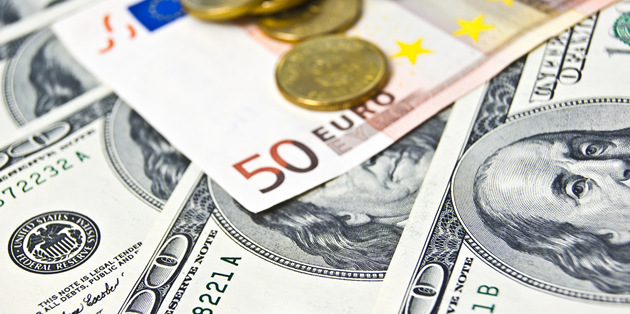The Euro to US Dollar (EUR/USD) exchange rate softened on Monday as investors shrugged off disappointing US manufacturing and industrial production data as they continued to bet that the Federal Reserve will hike interest rates this year.
The Euro to US Dollar (EUR/USD) exchange rate was trading in the region of 1.1186 to 1.1261
According to the Federal Reserve, industrial production, which measure the output of US mines, utilities and manufacturers declined by 0.2% last month, adding to the revised 0.5% fall seen in April, the figure disappointed expectations for a rise of 0.3%.
The cause for the drop in production was blamed on the strength of the US Dollar and the sharp fall in spending in the energy sector due to sliding energy prices.
Mining production was shown to have fallen by 0.3% as gas and oil drilling declined by 7.9%. Warmer weather in May increased demand for air conditioning but utility production still only rose by 0.2% after the sharp decline of 3.7% in April.
Manufacturing production also disappointed as the data showed that production fell by 0.2% in May, wiping out the 0.1% gain seen in the preceding month. The strong US Dollar has been particularly hard on the sector as it has eroded the profits for companies exporting overseas.
Federal Reserve Policy Meeting in Focus
Despite the poor data the US Dollar continued to receive support against the Euro and other major peers as market attention shrugged it off and focused on Wednesday’s Federal Reserve Interest Rate Decision and a speech by Fed Chair Janet Yellen.
Also continuing to support the ‘Greenback’ was last week’s positive consumer sentiment data which heightened expectations that a rate hike will occur in September.
Greece Continues to Weigh On Euro (EUR) Exchange Rate
Sentiment towards the Euro continued to be fragile as talks between Greece and its European creditors ended in failure over the weekend. Both sides refuse to budge on their demands and as such, worries that Greece will default has risen. Investors were looking ahead to a meeting of Eurozone finance ministers on Thursday, which was being seen as Greece’s last chance to strike a deal.
European Central Bank President Mario Draghi defended the central banks handling of the crisis whilst delivering a speech to the European Parliament.
‘This rules-based approach is what is required from us. This is what we have been following, and will continue to follow. We need a strong comprehensive agreement with Greece. And we need it very soon. While all actors must go the extra mile, the ball lies firmly in the Greek court,’ Draghi said.
The Euro could regain ground on Tuesday if the latest Eurozone Sentiment, employment change and German ZEW data come in positively.



